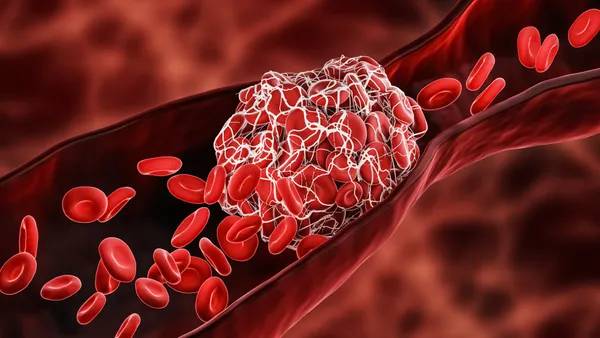An experimental and closely watched drug for multiple sclerosis has delivered positive results in two late-stage clinical trials, giving its developer confidence it could change how the disease is treated.
Roche said Monday that the drug, called fenebrutinib, hit the main goal of a trial focused on the most common, “relapsing” form of MS. According to Roche, participants taking fenebrutinib as opposed to Sanofi’s Aubagio showed a significant decrease in the average number of relapses — periods where neurological symptoms flare up or worsen — experienced in a year. A second, similarly designed experiment should produce results in the first half of 2026.
Additionally, fenebrutinib succeeded in a separate study that enrolled nearly 1,000 people with “primary progressive” MS. The drug was “non-inferior” at slowing the disease compared to Roche’s Ocrevus, a blockbuster product and the only approved therapy for this more severe kind of MS.
That study followed each participant for at least 120 weeks and used a mashup of three different tests to evaluate how the disease advanced. The composite measured walking speed, arm function and overall disability level. Researchers would classify a patient as progressing if their scores in any of these areas substantially worsened over a period of at least 12 weeks.
Unlike any approved MS drug, fenebrutinib is taken as a tablet and designed to inhibit an immune system-regulating enzyme named Bruton's tyrosine kinase. These enzymes are integral to the development of B cells, which produce the antibodies that alert the immune system to potential threats. While the root cause of MS isn’t fully understood, research suggests it stems from those antibodies mistakenly attacking the protective “myelin sheath” that surrounds nerve fibers.
The Food and Drug Administration has already approved BTK inhibitors such as Imbruvica, Calquence and Brukinsa for certain blood cancers. Two others, Sanofi’s Wayrilz and Novartis’ Rhapsido, were cleared this year for autoimmune conditions.
But success has been harder to find in diseases like MS. In early 2023, Biogen backed out of a collaboration with China-based InnoCare Pharma that sought to develop another oral BTK blocker for the disease. Merck KGaA disclosed the same year that a drug called evobrutinib failed in a pair of Phase 3 trials, which led the company to terminate development.
This class of drugs has raised safety concerns as well, particularly with regard to liver injury. The FDA, over the past few years, issued partial clinical holds on fenebrutinib, evobrutinib, InnoCare’s medicine and an inhibitor from Sanofi. The agency also recently delayed by three months its approval decision deadline for that Sanofi drug, tolebrutinib, which is under review as a treatment for “non-relapsing, secondary progressive” multiple sclerosis.
Analysts at Jefferies wrote in a note to clients that, given the “numerous” clinical trial setbacks for BTK inhibitors, the “sentiment was low” on Wall Street for Roche’s trials. That two have now hit their key goals is therefore a “positive surprise.”
Yet, there remain outstanding questions, according to the analysts. One is whether showing non-inferiority to Ocrevus is enough to file for approval in primary progressive MS. Another is if Roche’s filing strategy in relapsing MS relies on the “totality of the data” — which could hinge on how that second trial due next year reads out.
Perhaps to be expected, Roche leadership sees the trial outcomes as clear wins.
“These unprecedented results suggest that fenebrutinib could potentially become a best-in-disease medicine as the first high-efficacy, oral treatment” for people with relapsing or primary progressive MS, said Levi Garraway, Roche’s chief medical officer, in a statement.















